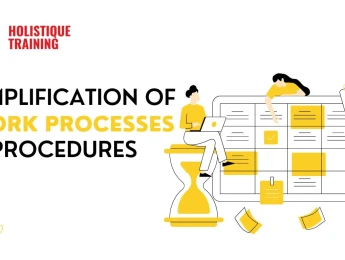The essentials for auditing and assurance encompass a range of fundamental principles and practises vital for ensuring the integrity and reliability of financial information. Auditing serves as a cornerstone in verifying the accuracy of financial statements and providing assurance to stakeholders.
Key elements include understanding audit objectives, assessing risks, and designing appropriate audit procedures. Assurance, on the other hand, extends beyond financial statements to encompass broader areas such as compliance, governance, and risk management. Effective auditing and assurance require adherence to professional standards, independence, objectivity, and ethical conduct.
Continuous learning and adaptation to evolving regulations and industry practices are also essential for auditors and assurance professionals to maintain their proficiency in providing credible and valuable insights to stakeholders.
Upon completion of this course, participants will be able to:
- Understand the roles of audit and assurance, corporate governance, and professional ethics.
- Differentiate between internal and external audit functions.
- Evaluate financial discrepancies and assess fraud-related risks.
- Provide recommendations following risk exposure.
- Conduct IT audits and review financial records.
- Manage various audit reports, including internal and statutory reports.
- Assist organisations in building trust with customers and investors.
- Ensure compliance with governmental regulations and policies.
- Explain the principles and components of internal auditing.
- Demonstrate the operational aspects of internal audit processes.
- Identify the standards governing internal audit procedures.
- Gain insight into contemporary practices in the field.
This course is designed for anyone responsible for auditing procedures regarding departments or processes within an organisation. It would be most beneficial for:
- Auditors
- Business Owners
- Department Managers
- Risk Assessors
- Project Planners
- Administrative Professionals
- Data Analysts
- Health & Safety Personnel
- HR Professionals
- Finance Managers
- Accountants
This course uses a variety of adult learning styles to aid full understanding and comprehension. Participants will watch videos to understand why audits are pivotal to an organisation's successful functioning. They will review the various types of auditing procedures based on different departments and understand the scheduling requirements to work with governance procedures.
They will then work together in groups to assess real-world case studies and data and discuss how to plan for an audit and what specific things to look out for in each case presented to them.
Day 5 of each course is reserved for a Q&A session, which may occur off-site. For 10-day courses, this also applies to day 10
Section 1: Auditing & Accountability within an Organisation
- Importance of accountability in organisations.
- Understanding audit frameworks and standards.
- Internal vs. external auditing.
- Risk assessment and management in auditing.
- Ethical considerations in auditing processes.
- Auditing techniques and methodologies.
- Role of technology in auditing and accountability.
- Regulatory requirements and compliance.
- Reporting and communication in auditing.
Section 2: How the Audit Process Works
- Planning and scoping an audit.
- Gathering audit evidence and documentation.
- Evaluating internal controls and risk management.
- Conducting substantive testing.
- Analysing financial statements and transactions.
- Reporting audit findings and recommendations.
- Addressing audit issues and discrepancies.
- Follow-up procedures and corrective actions.
Section 3: Applying the Auditing Process to Various Departments
- Tailoring audit processes for different departments.
- Understanding department-specific risks and controls.
- Audit considerations for finance and accounting departments
- Auditing HR processes and compliance.
- Operational audit techniques for production and service departments.
- IT audit fundamentals and considerations.
- Supply chain and procurement audit procedures.
- Marketing and sales audit strategies.
- Auditing risk management practices across departments.
- Integrating audit findings for organisational improvement.
Section 4: Auditing HR & Payroll Processes & Storage Procedures
- Understanding HR and payroll audit objectives.
- Evaluating compliance with employment laws and regulations.
- Assessing payroll accuracy and completeness.
- Reviewing employee records management procedures.
- Ensuring data protection and confidentiality in HR and payroll systems.
- Auditing payroll tax withholding and reporting.
- Examining controls over employee benefits administration.
- Investigating payroll fraud detection and prevention measures.
- Assessing HR and payroll process efficiency and effectiveness.
Section 5: Audit Review & Next Step Recommendations
- Overview of audit review processes.
- Evaluating audit findings and conclusions.
- Identifying strengths and weaknesses in audit procedures.
- Developing actionable recommendations for improvement.
- Prioritising next steps based on audit results.
- Communicating recommendations to stakeholders effectively.
- Implementing change management strategies post-audit.
- Monitoring and tracking progress on recommended actions.
- Conducting follow-up audits to assess improvement.
- Continuous improvement practices in audit review processes.
Upon successful completion of this training course, delegates will be awarded a Holistique Training Certificate of Completion. For those who attend and complete the online training course, a Holistique Training e-Certificate will be provided.
Holistique Training Certificates are accredited by the British Assessment Council (BAC) and The CPD Certification Service (CPD), and are certified under ISO 9001, ISO 21001, and ISO 29993 standards.
CPD credits for this course are granted by our Certificates and will be reflected on the Holistique Training Certificate of Completion. In accordance with the standards of The CPD Certification Service, one CPD credit is awarded per hour of course attendance. A maximum of 50 CPD credits can be claimed for any single course we currently offer.
- Course Code PO4-124
- Course Format Classroom, Online,
- Duration 5 days














